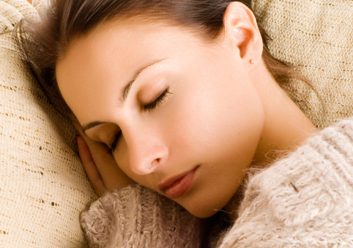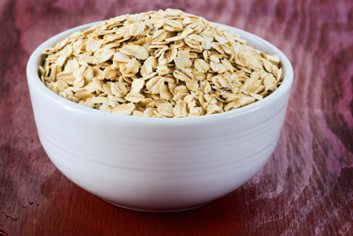
Why it’s important to get enough sleep
I tell my husband not to take it personally, but I would rather get a good night’s sleep than head out for a night on the town. Sleep is a huge part of my healthy lifestyle, right up there with nutritious eating and exercising. Not only is sleep crucial for our mental health, but emerging research also points to it as an important factor for our weight and eating habits.
A 2012 report in the Journal of the Academy of Nutrition and Dietetics reviewed almost 20 studies on the relationship between sleep deprivation and weight.
The studies of men and women suggest that “sleep deprivation”-sleeping fewer than six hours a night-is linked to energy imbalance and potential weight gain. Adults who did not get enough sleep felt hungrier, and craved higher-fat, higher-calorie foods. In one study, sleep-deprived women ate 400 more calories a day than women who got enough sleep over the course of four nights. In another study, men ate almost 600 calories more the day after sleeping just four hours, and 30 percent more fat at dinner, compared to men who got eight hours of sleep.
So why exactly do we eat more when we sleep less? There are a few theories. Reduced sleep seems to disrupt two important appetite hormones in our body: ghrelin and leptin. Ghrelin stimulates our appetite, while leptin sends the signal to our brain that we’re full. When we are sleep deprived, ghrelin levels increase and leptin levels decrease. Sleep deprivation may also turn on the hormone cortisol, which encourages our bodies to store abdominal fat. Another theory is that there’s simply more time for late-night snacking when you’re awake longer. And when we are sleep deprived, chances are we’re too tired to work out, too.
The health problems associated with sleep deprivation go beyond weight. The Canadian Obesity Network notes that sleep deprivation can lower insulin sensitivity, which can be an early marker for diabetes. Chronic lack of sleep may also be linked to a higher risk of high blood pressure (especially in women) and decreased immunity.
Experts such as the U.S.-based National Sleep Foundation generally recommend adults get seven to nine hours of sleep every night. So, honey, please don’t be upset if I turn down the late-night movie date with you. Let’s catch the matinée and have an early dinner instead!
Click through for tips on how to get a good nights’ sleep:

Relax before bedtime
Read, meditate or stretch. Listen to relaxing music or take a bath. Drinking a cup of herbal, non-caffeinated tea may also lull you to sleep.

Try cherries
They are one of the only foods that contain melatonin, a chemical that regulates our sleep. Tart cherry juice is especially rich in melatonin, not to mention free-radical-busting antioxidants. Give them a try and see if they work for you.

Exercise
After a hard workout, you’ll look forward to a good night’s sleep to rest and restore your body. Plus, exercise is undeniably one of the best stress busters. Just don’t exercise too close to bedtime, because you’ll end up feeling energized rather than relaxed.

Have a light snack
If you are hungry before bedtime, a small snack that combines carbohydrates with some protein can help trigger serotonin, which is also known as the “calming hormone.” A bowl of cereal, or a piece of toast with a glass of milk, may do the trick.

Avoid alcohol close to bedtime
Alcohol may help you fall asleep, but you won’t get a deep, restful sleep.

Limit caffeine
Caffeine stays in your system for up to eight hours, so have your last cup of java by early afternoon.
Related:
• How sleep affects your health
• 6 soothing yoga poses to help you sleep
• 4 foods to help you sleep
